TNC Dedicates Coral Innovation Hub on St. Croix

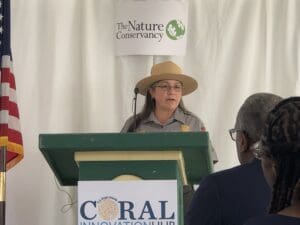
On Friday, the Nature Conservancy opened the V.I. Coral Innovation Hub, a laboratory focusing on coral research, conservation, new coral science, and technology with plans to share research and knowledge throughout the region and the world.
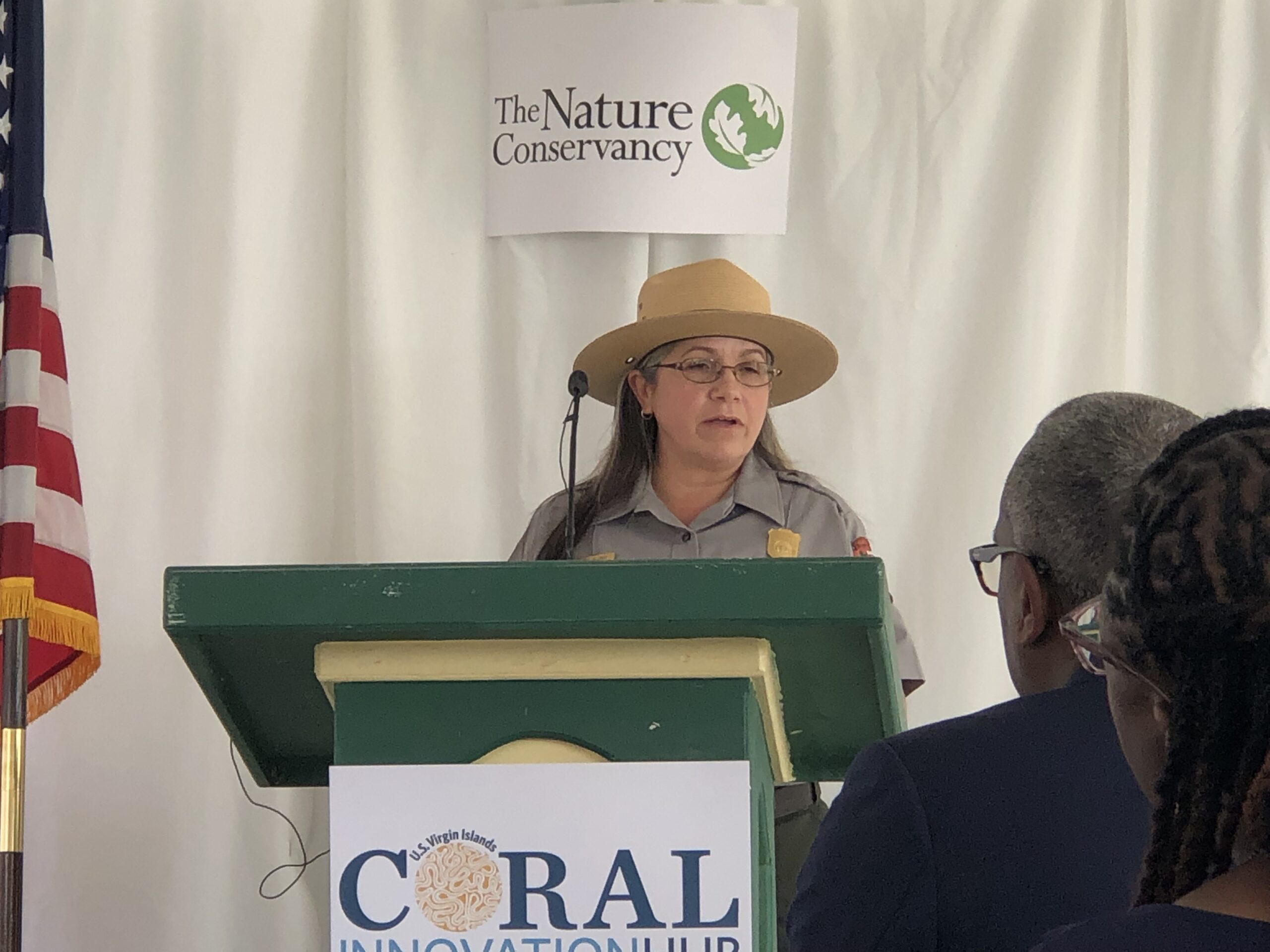
“I’m sure you’ve heard and know that reefs here, like everywhere, have been impacted by hurricanes over the years, and the latest is the stoney coral disease, and so the goal is to work with all of our partners to increase the coral cover,” back to what it was, Jessica Ward, National Park Service superintendent, said.
Ward, a marine biologist, said the program involves “micro-fragmenting” growing coral embryos in off-shore or land-based nurseries.
The overall purpose of the lab is to help reefs recover by breeding coral on land-based and underwater nurseries, speakers said. Their process will grow significantly more corals with better survival rates while preserving coral genetic diversity for better reef resilience. The healthy corals will be planted to bring back dying reefs in underwater nurseries that cover almost five thousand square feet.
Dozens of government officials, stakeholders, and community leaders joined TNC and partners for the ribbon cutting and then toured the lab located on the beachside of the Great House on the 25-acre TNC nature preserve.
Speakers welcomed the crowd and congratulated TNC on the project, including Jennifer Morris, TNC chief executive officer, Celeste Jarvis, TNC V.I. program director, Ayana Flewellen, president of the Society of Black Archaeologists and Jennifer Koss, from NOAA’s Coral Reef Conservation Program.
Gov. Albert Bryan, Jr. and Angelita Alvino, St. Croix superintendent of the National Park Service, expressed appreciation for the innovative addition to the territory.
Alvino pointed out there is already successful coral growth on the South Shore and at Buck Island. The South Shore is home to 215 transplanted corals, and there are 100 in the waters around Buck Island.
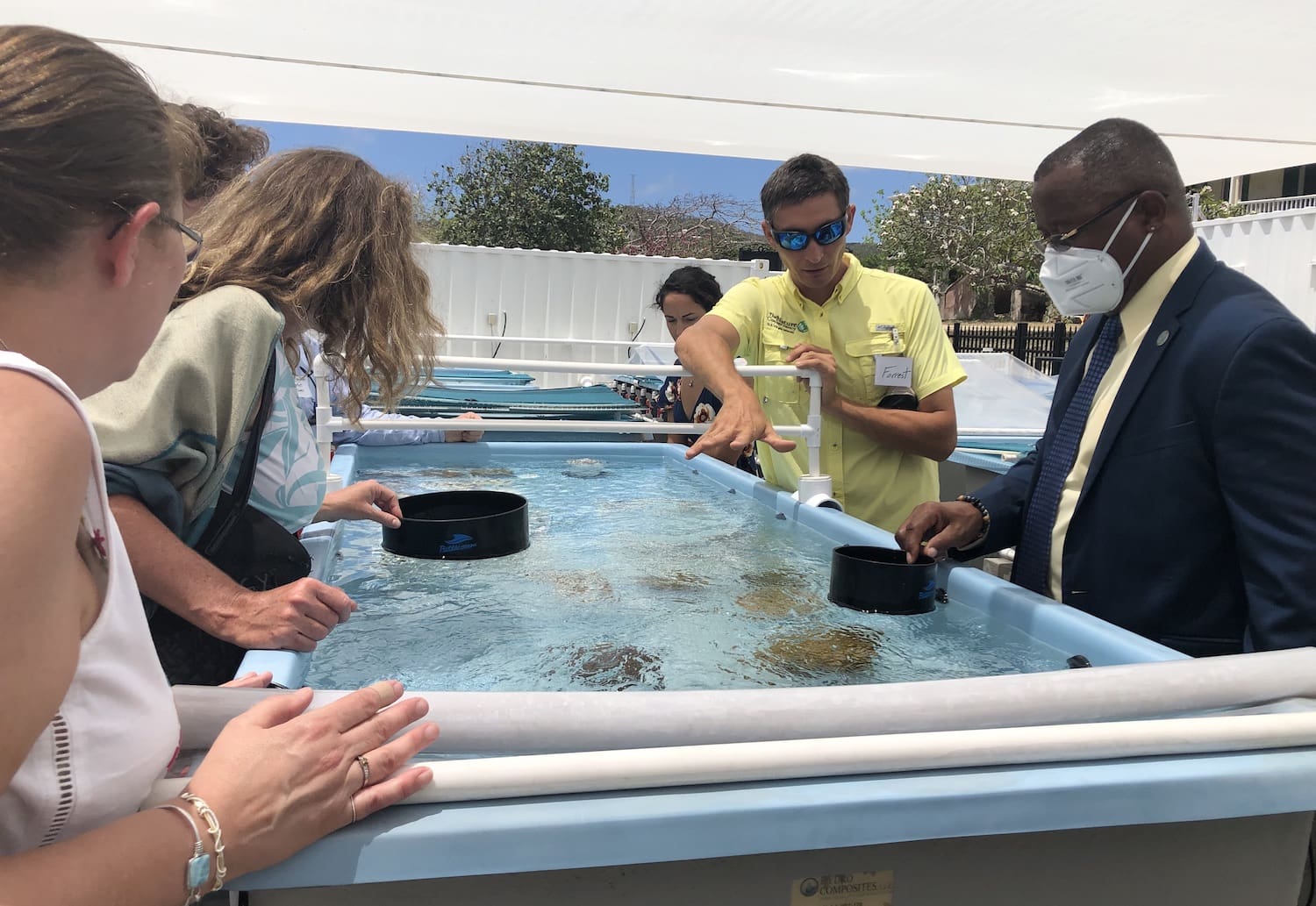
The governor said he has seen the changes in coral himself in just four years. He also said he is researching possible funding sources for the program.
“No one has said this, but congratulations to TNC and its partners for doing all this,” he said.
Kemit-Amon Lewis was a special guest recognized by many at the celebration. As TNC manager, he managed the first coral reef conservation project around 10 years ago, including planting the first coral nurseries in the waters around St. Croix. He also started the Reef Resilience program. Now, the St. Croix native is a marine scientist at the Perry Institute for Marine Science.
Those who toured the facility saw forms used to grow baby corals — reef stars covered with sand and glass, rebar tables, and much smaller porcelain stars — where larvae attach themselves and grow at a quicker rate than if they were left on their own.
Alexandra Gutting, TNC coral conservation coordinator, said larvae are released in the nursery tank’s water, settle on the forms and begin to grow. They are fed plankton and grow with a “good” ten percent survival rate as opposed to two or three percent survival in the open sea.
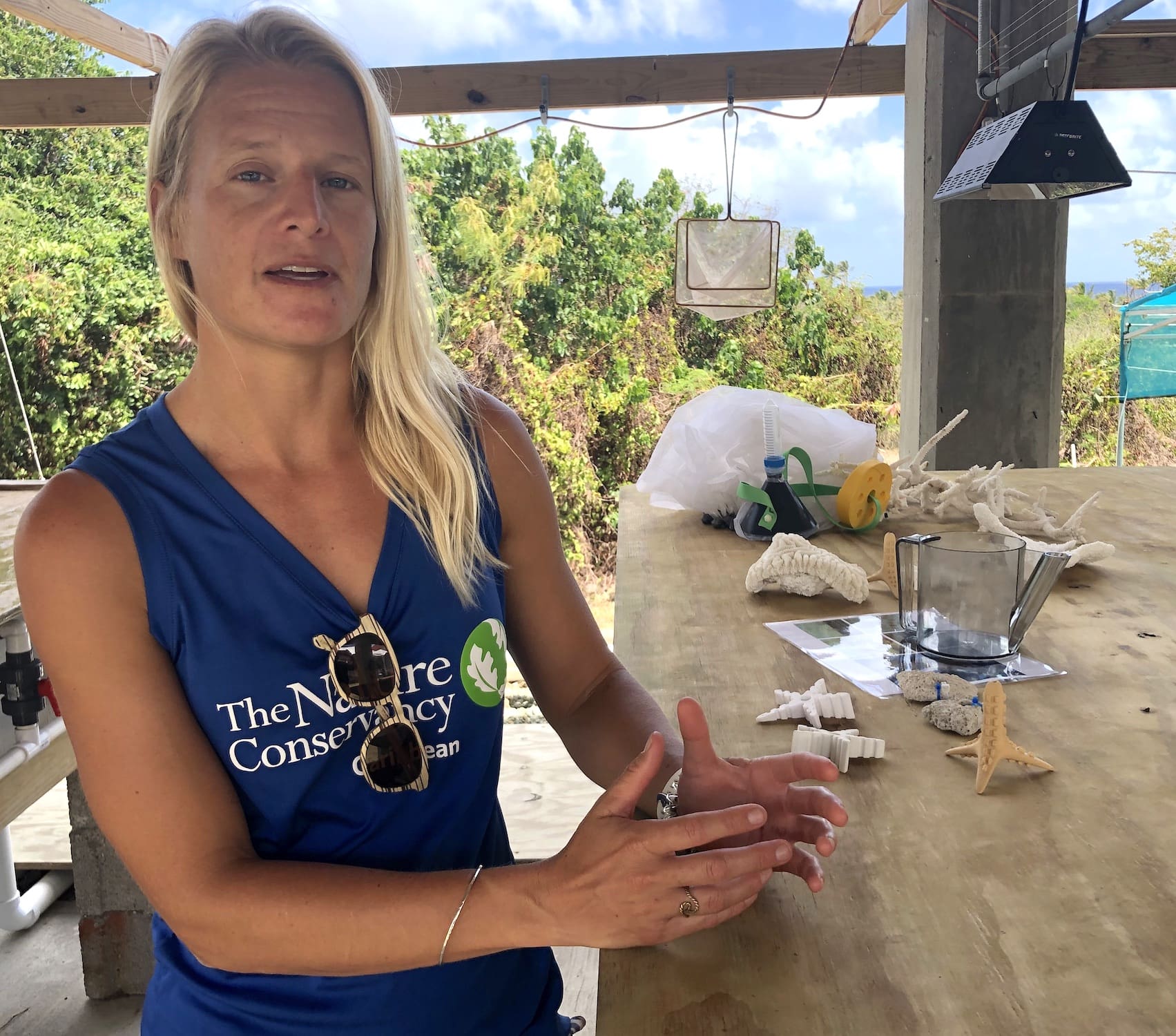
An intricate water filter system keeps the Hub running and, according to Forrest Peterson, Hub supervisor, for three or four weeks when the power goes out. He said the system recycles water throughout the 24 tanks every 10 minutes, and exchanges 10 percent of the water with seawater every 10 days, which is then cleaned and circulated throughout the system.
There is an enclosed air-conditioned lab where sea life is studied under a microscope. Biologist Zyann Calixte said the lab hopes to be able to adjust coral DNA to make it more viable.
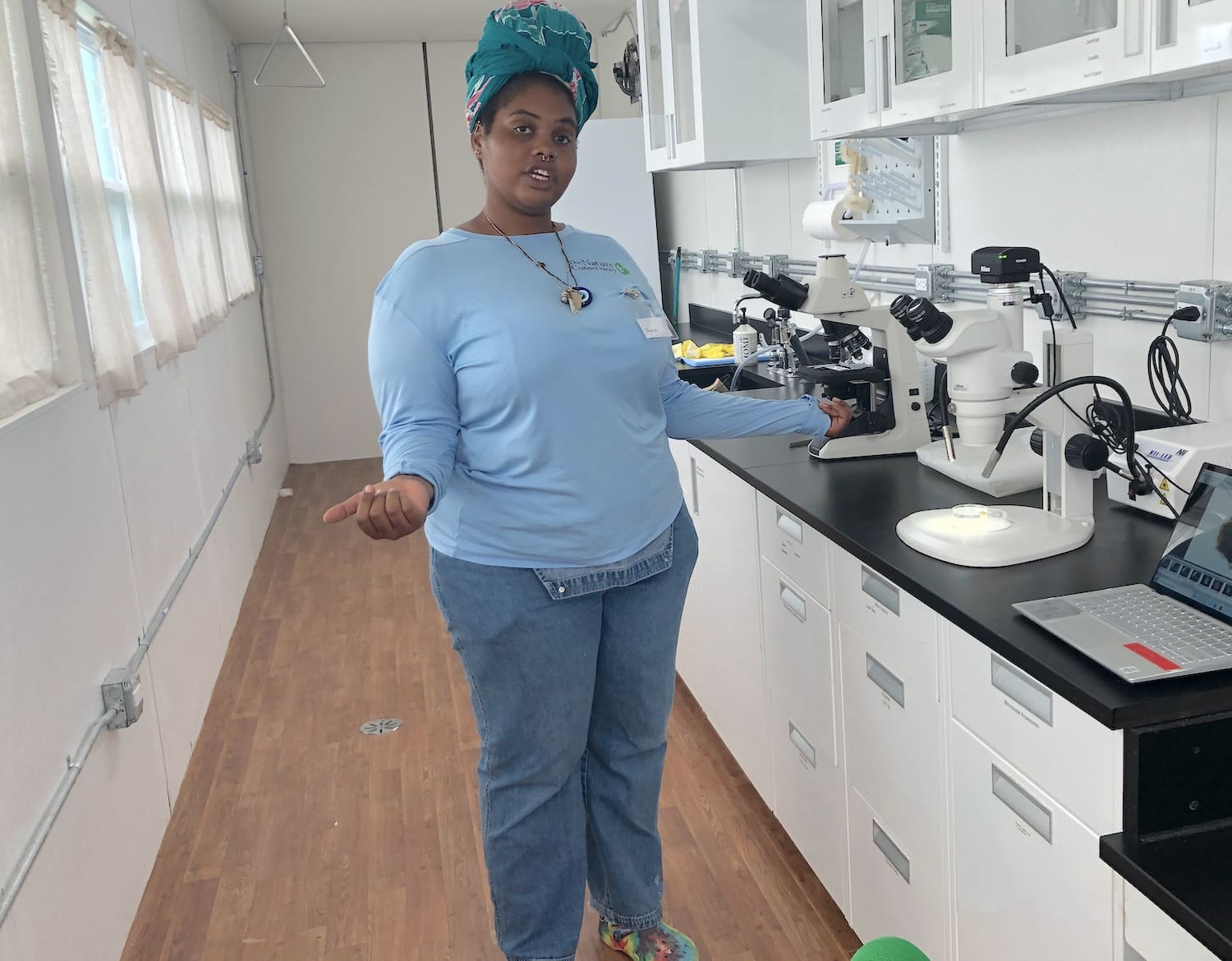
In addition to the Coral Hub, TNC, NOAA, and the National Fish and Wildlife Foundation have partnered with NPS to grow coral on the reef south of the East End Marine Park and the North Shore of the island.
The new St. Croix facility joins TNC Coral Innovation Hubs in the Bahamas and the Dominican Republic.
“Working in 17 countries and territories in the Caribbean, TNC is committed to securing lasting conservation outcomes and a bright future for the Caribbean by protecting the ocean and coasts, safeguarding the habitats that sustain people and wildlife, and building resilience against the impacts of climate change and empowering communities to manage their natural resources in ways that allow people and nature to thrive together,” according to .
